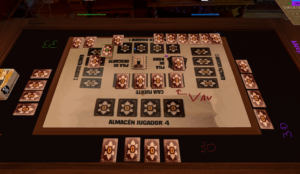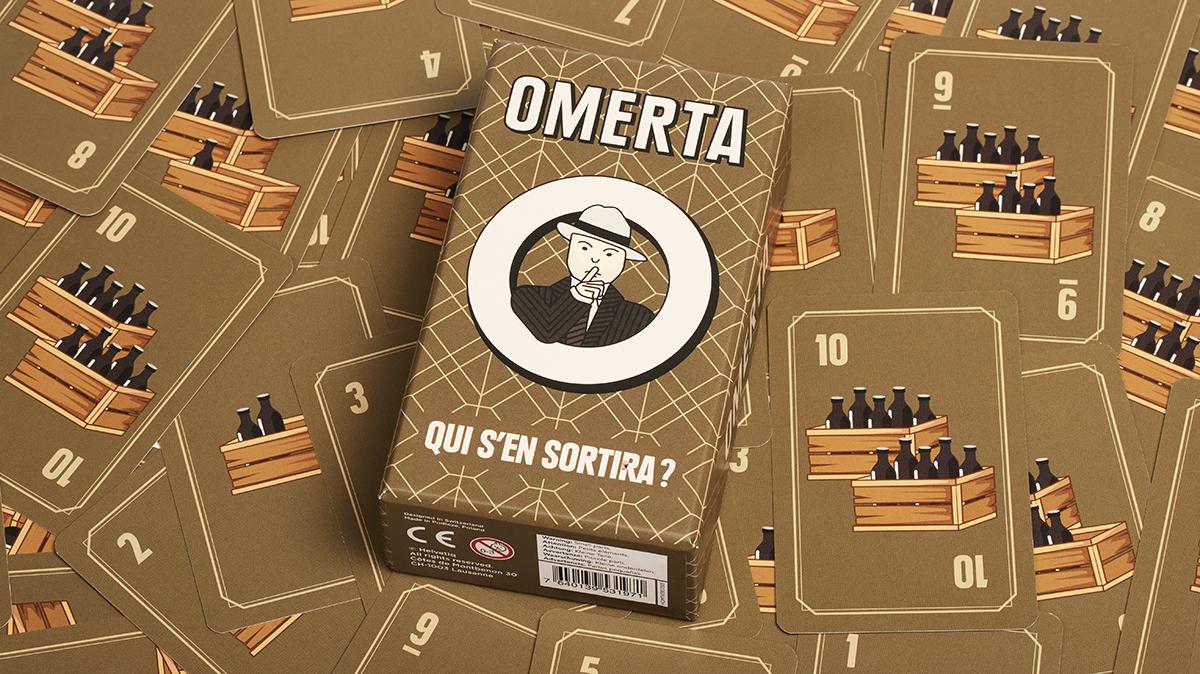The Mafia and Presidents
For this week’s critical play, I played Omerta both during class on 4/11/24 and with my group of friends. Omerta is a strategic game published by Helvetiq designed by Adrien Dumont and Timothée Rignault. Omerta’s artwork is drawn by Florian Bellon and Timothée Rignault. Omerta is a memory and resource management card game where players become famous gangsters and are tasked with having the least amount of alcohol bottles at the end of the game. By limiting the information players have along with special effect cards that drive player interactions between each other, Omerta is a challenge and narrative type game that uses card-based mechanics to drive fun.

My team’s concept is currently called “I Will Be President!” (IWBP) which involves players moving around a map board and playing special effect cards (policy cards) in order to increase their number of votes to win the game. IWBP is similar to Omerta in that special card effects drive player interactions during play and resource management serves a challenge that players must overcome to win. On the other hand, “I Will Be President” also differs greatly from Omerta in how negotiation, as opposed to memory, is a core mechanic of IWBP.
There’s Something Similar Here
In order to achieve the player’s goal of ending the game with the least amount of alcohol bottles, Omerta has character cards that allow effects such as shuffling other player’s cards, swapping cards, and more. During one of the games I played, Player A used their character card to swap cards with Player B and on the next turn, Player B shuffled all of Player A’s cards in retaliation. This is a player interaction which occurred only because character cards give players the ability to affect other players. A favorite card to play among players was the Snitch which could add 2 additional cards to a player’s face down cards. This caused cries of despair.
The Lady shuffles and adversaries cards and The Snitch gives player(s) more cards
I envision IWBP to have a similar player dynamic. When playing in class, one of my teammates mentioned that this player-player interaction was similar to a veto policy card (a card which negates other policy cards) that the team had been considering adding. Since we all liked this interaction, we decided to add the veto policy and more player-player effects. I believe adding player-player interaction cards will be beneficial and add into the challenge aspect of IWBP and drive more social interaction.
Additionally, both Omerta and IWBP are both resource management games. Although in Omerta you want to minimize your alcohol bottles and in IWBP, you want to maximize votes, both games require you to keep track of how much of a resource you have. When I was playing Omerta, I would always swap out my four starting cards in order to get a sense of the number of . Even though I knew I was at risk of removing a good card, I valued the information more. But, this strategy did lead to some funny moments such as swapping a 3 alcohol card for an 8 alcohol card which caused me to cry a little on the inside.
IWBP will also require players to keep track of not only their votes, but also of what policies have been played and their position on the map board. Since IWBP limits what policies can be played based on player location, players must be cognizant of multiple factors in order to win.
But they’re not the same game
The biggest difference between Omerta and IWBP would be the core mechanic behind the resource management dynamic of each game. In Omerta, the core mechanic is remembering what face down cards you have. For IWBP, the core mechanic would be negotiating with other players to get required policy cards for your win.
For Omerta, players are only allowed to look at their initial cards once and proceed through the game by swapping cards to minimize the number of alcohol bottles they have. In IWBP, players are able to win without any negotiation, however, players engaging in negotiation should have a much easier time as instead of only having the policies in their hand, they would essentially have access to all other cards in all players’ hands through negotiation.
Omerta requires players to place cards facedown, forcing players to use their memory to remember what cards they have
Unlike Omerta where all players are playing for themselves, IWBP also promotes fellowship between players as successful negotiations can help to form alliances between players to engage in group tactics (such as targeting a player who is close to a win).
In Conclusion
Omerta is a fun game based in memory and resource management whereas IWBP leans more into negotiation as a core mechanic. These games are similar in that they will both use special effects to drive player-player interaction and require players to engage in resource management. However, the core mechanic behind resource management differs as IWBP will use negotiation as opposed to memory.





